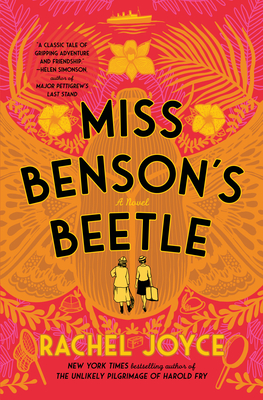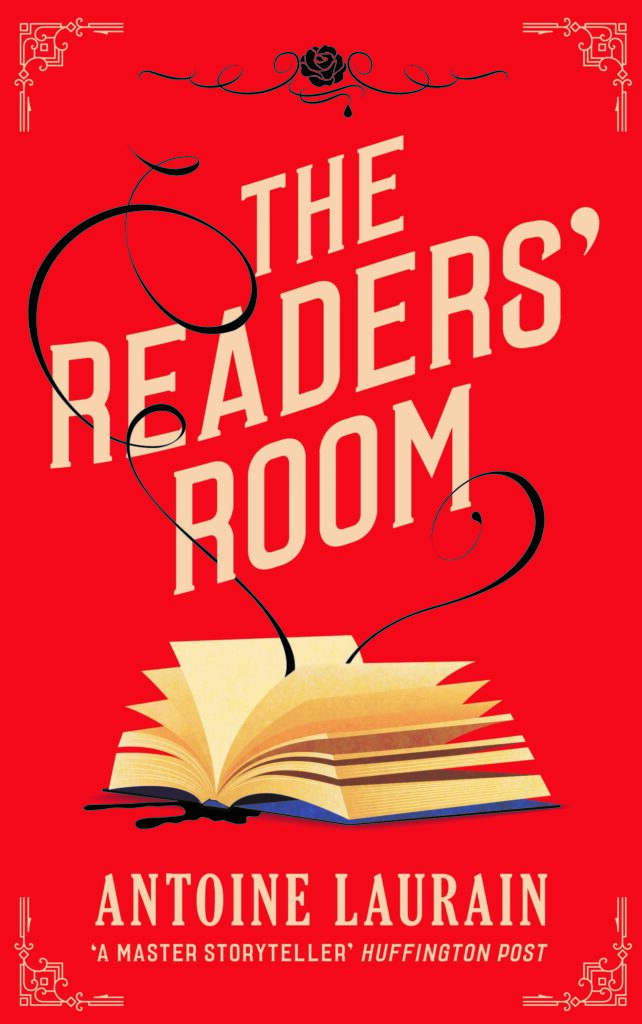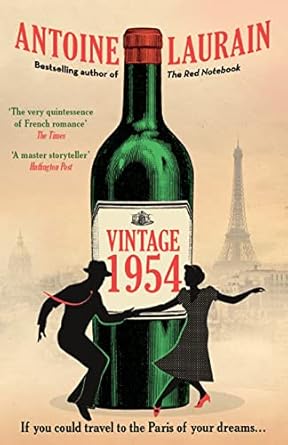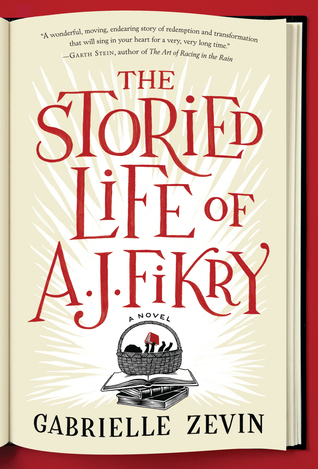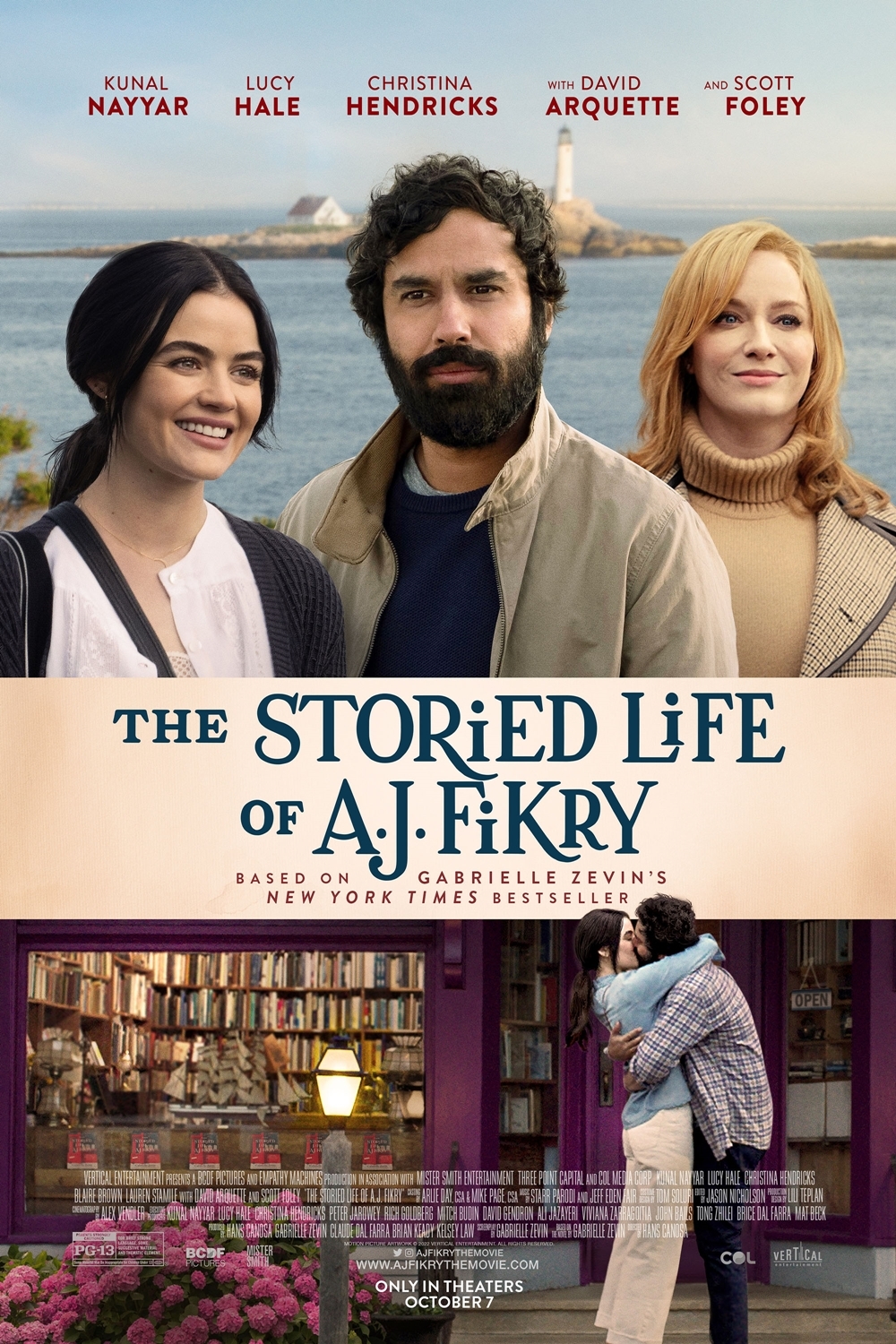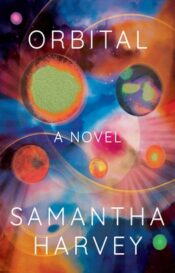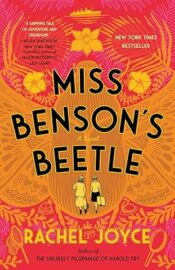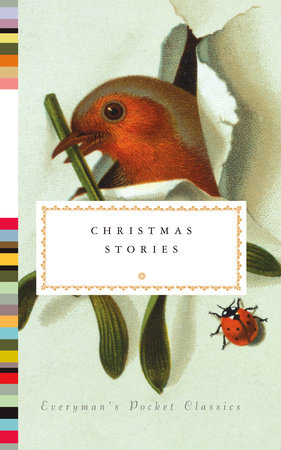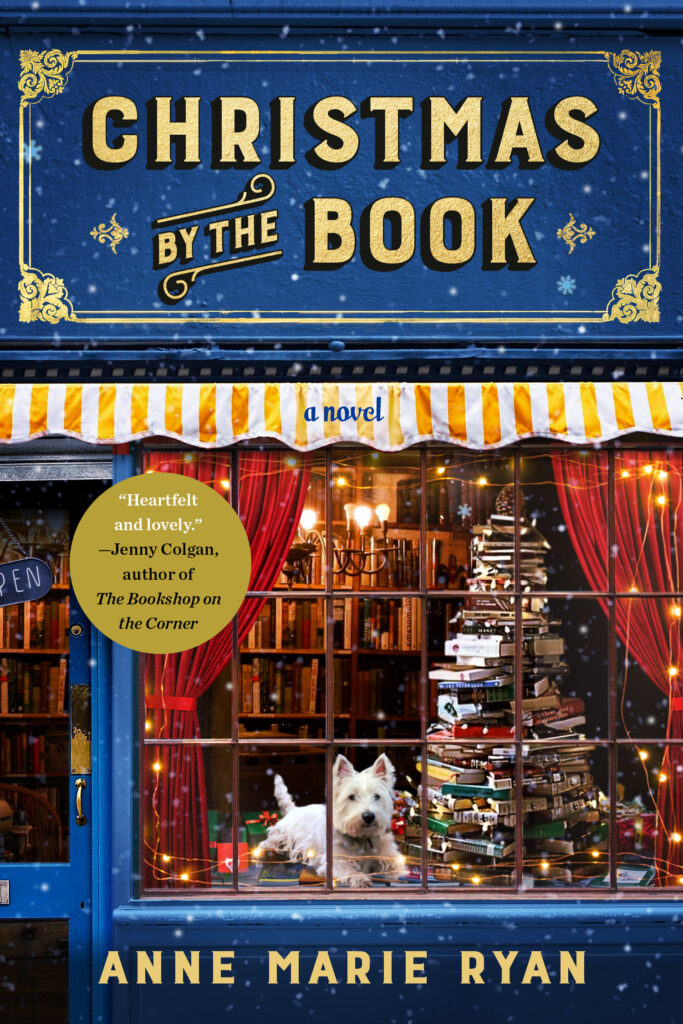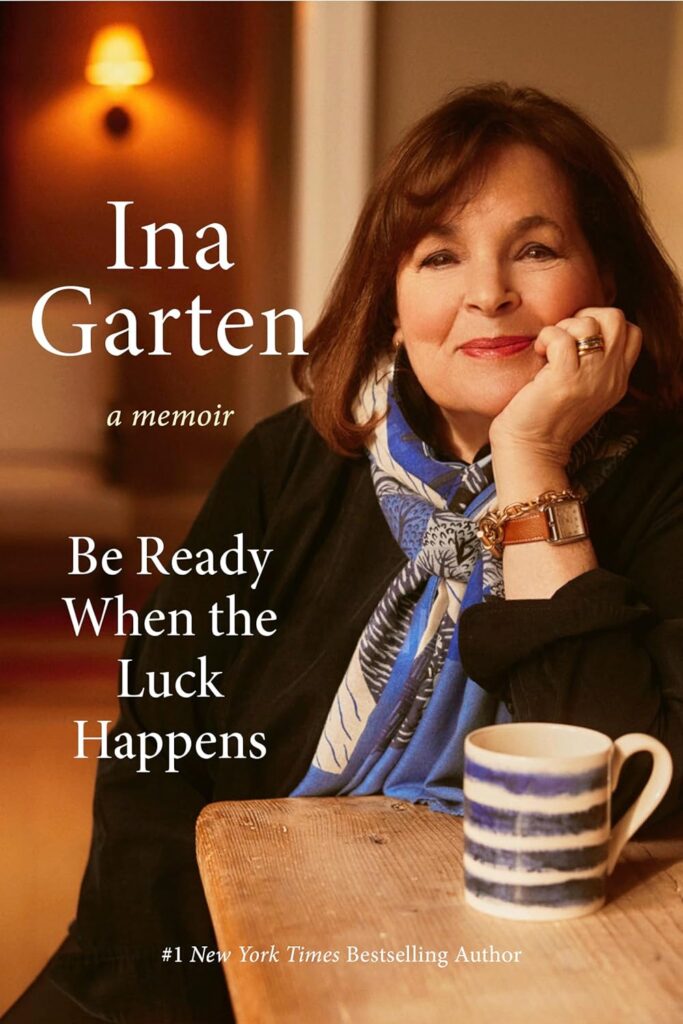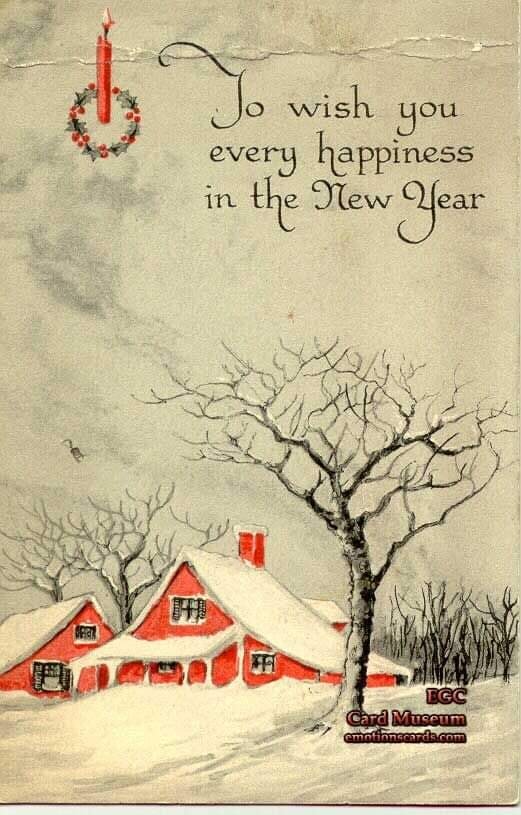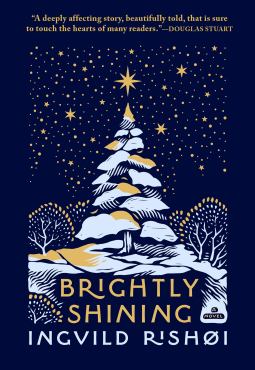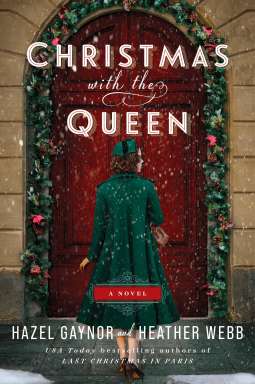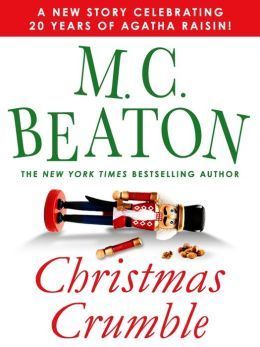Miss Benson’s Beetle by Rachel Joyce
What a fun read! It starts with this opening line “When Margery was ten, she fell in love with a beetle”.
Marjorie Benson is a large middle-aged spinster — proper, reserved, self-conscious, and both physically and socially awkward. The story begins with Marjorie trying to teach her class of unruly, disruptive girls. They pass around a drawing which makes fun of her appearance. Humiliated, she walks out of the school, but only after stealing a pair of boots.
She decides to fulfill her lifetime dream of finding and proving the existence of a rumored golden beetle in the jungles of the remote New Caledonia Island and to present her discovery to the Natural History Museum. Out of necessity, Margery advertises for an assistant to accompany her to this faraway island. The first two applicants were found unsuitable. A third woman was hired but later backed out.
This left Enid Pretty, dressed in a tight pink suit, wearing pom-pom sandals, and with hair dyed a bright yellow — she also seems quite unsuitable. However, Enid is enthusiastic about the expedition and pleads to be Marjorie’s assistant. She doesn’t even have a passport and knows nothing about beetles, but time is short so Marjorie reluctantly agrees that Enid accompany her on this journey of exploration.
Together these two British women find themselves drawn into a wild and crazy cross-ocean adventure that defies all expectations. Their unlikely friendship builds over time — one step at a time, and is a marvelous tale of the transformative power of friendship.
There are some glorious descriptions of the journey and especially of New Caledonia — you feel like you are hacking through undergrowth with these women as they blaze a trial in search of the elusive golden beetle.
She smelled the sweet air, she heard the orchestra of birds and insects, and far away the ocean; she saw the red flowers like two hands in prayer, the vast kauri trees.
This is not only a wonderful adventure story, it’s also a journey of self-discovery and the freedom of women to rediscover themselves at various seasons of life. Marge and Enid’s friendship allows them to love the best parts of themselves.
The truest friendships are those that allow us to step out of the confines of what we once were, and to realize instead what we might be.
Miss Benson’s Beetle has every ingredient I seek in a novel – adventure, humor, suspense, tension, and moments of beauty – all with wonderful characters experiencing a life changing and exciting new journeys.
An advanced reading copy was kindly provided by The Dial Press via Netgalley.
Ms. Joyce has also written one my favorite books – The Music Shop – also highly recommended.
The Reader’s Room by Antoine Laurain
Mr. Laurain is a French author who wrote The President’s Hat which I enjoyed very much. Turns out The Reader’s Room is just as clever and fun.
This short novel tells a big story. With a tragic past, Violaine, has transformed herself into a senior literary agent at a Paris publishing house. Her career is full — finding new literary talent, feting existing authors, and attending glamorous cocktail parties.
On her way back from a visit to a U.S. author (Stephen King, no less) her plane crashes. When she awakes from being in a coma after the crash, things begin getting strange.
She has lost much of her memory, she sees and can hold conversations with Marcel Proust, and one of her debut crime novels “Sugar Flowers” is up for France’s highest literary prize, but the author can’t be found. Even more concerning, people are getting murdered directly copying this crime novel and the police are investigating.
As Violaine’s memory starts to return, she discovers she has some very strange secrets including an uncomfortable link to the book. Is there a connection between Violaine, the author, and the crimes?
This short mystery book is just 176 pages and is beautifully translated so the sly humor and acerbic French wit are not lost. Mr. Laurain brings his characters alive with just a few elegant lines and tells their stories in just a few pages — concise with not a word wasted
I enjoyed this well crafted novel and its literary mystery — and hey, wouldn’t it be lovely to converse with Marcel Proust?
An advanced readers copy was kindly provided (a few years ago) by Gallic Books Ltd.
And look at this – I just checked out another of his novels from the library…already enjoying it. A group go wine tasting and get transported back to 1954 Paris – should be really fun.
The Storied Life of A. J. Fikry by Gabrielle Zevin
You might have heard about this book, but I think I was the only bibliophile on the planet who didn’t care for this novel centered around a bookseller and his bookstore in Cape Cod.
A. J. Fikry, the bookseller, has lost his wife, drinks to excess, and is falling apart. The plot introduces two characters — a publisher’s rep who challenges his state of affairs and then an abandoned child, who A. J. Fikry, takes in and eventually adopts – so contrived, I shook my head.
The story then ventures into romantic melodrama and the writing seemed aimed to a young adult reader. By the time I turned the last page, I needed a walk to clear my head from the cutesy schmaltz, and that’s when I dropped my copy off at a little free library for someone else to try.
I never bothered you all with a thumbs down review of The Storied Life of A. J. Fikry but now there’s a Netflix film adaption on Netflix — so I think attention must be paid and a warning must be issued.
The other night I decided maybe, just maybe, the film will be an improvement on the book, and so settled in to give it a try.
All I can say is I will never get back that hour and three-quarters of my life I wasted watching the film (not forgetting the hours spent reading the book) – it was terrible. The bookshop was digitally rendered, the characters were so one-dimensional, they could have been artificially created, and the dialog was even worse than the book.
So fair warning – spend your time elsewhere. So many better books and films out there.
Luckily, I’m reading these two books (yes, I often read two books at once).
They are very different, but both excellent so far.
How not to get Murdered in an English Village
British mysteries are some of my favorite reading, no matter what my mood, I adore the village settings, the very English personalities, and often eccentric characters. It probably comes as no surprise that I also enjoy some of the broadcast British mysteries – whether it’s Miss Marple or Midsommer Murders – there’s always a bucolic English village with quaint thatched cottages, the local pub, and countless cups of tea served in cozy tea rooms.
But don’t get too comfortable, as there is always, always a murder or two (or three!). These murders range from the genteel – stabbed by knitting needles in Miss Marple, to secret poisonings on Vera – to the very, very bloody killings in Badger’s Drift (I’m looking at you Midsommer Murders!)
The other night, as Husband and I finished a watching a murder mystery set in a wonderful little village, we said to each other – wow if we are ever in such an English village – we’ll have to be really quite careful.
Then, I remembered this essay from 2020 which made me laugh…I’ll post it now and in a later post will share some of my favorite British mysteries in both written and televised form.
~~~~~~~~~~~~~~~~~~~~~~~~~~~~~~~~~~~~~~~~~~~~~~~~~~~~~
Your Guide to Not Getting Murdered in a Quaint English Village
by Maureen Johnson
It’s happened. You’ve finally taken that dream trip to England. You have seen Big Ben, Buckingham Palace, and Hyde Park. You rode in a London cab and walked all over the Tower of London. Now you’ve decided to leave the hustle and bustle of the city and stretch your legs in the verdant countryside of these green and pleasant lands. You’ve seen all the shows. You know what to expect. You’ll drink a pint in the sunny courtyard of a local pub. You’ll wander down charming alleyways between stone cottages. Residents will tip their flat caps at you as they bicycle along cobblestone streets. It will be idyllic.
Unless you end up in an English Murder Village. It’s easy enough to do. You may not know you are in a Murder Village, as they look like all other villages. So when you visit Womble Hollow or Shrimpling or Pickles-in-the-Woods or Nasty Bottom or Wombat-on-Sea or wherever you are going, you must have a plan. Below is a list of sensible precautions you can take on any trip to an English village. Follow them and you may just live.
___________________________________
PLACES TO AVOID
___________________________________
The village fête
The village fête is a fair, a celebration on the village green. They toss coconuts, judge cakes, drink tea, and whack toy rats with mallets. It’s a nice way to spend a summer’s day and thin out the local population, because where there is a fête, there is murder. If you enter a town while the fête is happening, you are already dead. The tea urn is filled with poison. The sponge cakes are full of glass. There’s an axe in the fortune telling tent. The coconuts are bombs. It’s like the Hunger Games, but dangerous.
Anywhere with a vat
In English villages, vats only exist for drowning people—in beer, in pickling brine, in whiskey, in jam. This is doubly true if the vat was built by 14th century monks. If anyone offers to show you a vat, say you need to get something from your car, then start the engine and run them over. The police understand this sort of thing. Tell them about the vat.
Places with gargoyles or statuary
Ghosts and monsters of stone. They are there to kill you.
The village church
The vicar will find your body if you venture here.
The village shop
They sell cheese, stamps, tea, and death.
The stables
How do you prefer to go: pitchforked, or stomped to death by a two-thousand-pound animal? Spoiler: it will be both.
Canopy beds
They have snakes in them.
Kitchens
No.
Attics
Join the ghosts up there, why don’t you.
Higher floors
Stay low. They can’t throw you off the balcony if you never go up the stairs.
The stairs
They are the xylophones of death.
Lower floors
Marble busts fall down, not up.
Basements
They don’t even have to dig a hole to put you in.
Bathtubs
You’re better than this.
Wells
Full of the skeletons of Victorian children and, if you are unwise, you.
The pond
Just remove water as a category.
The village green
Also land.
___________________________________
PEOPLE TO AVOID
___________________________________
The vicar
See previous note about the village church. When you see the vicar, run. If you are not dead yet, the vicar is obliged to kill you.
The newest resident in town
They don’t know the Old Ways yet and refuse to learn. They want to open up a Coolspa in that twee Grade Two-listed thatched cottage. They’re talking to you because no one else will talk to them. They’ll be a popsicle soon enough. Shun.
Anyone who leaves a voice mail
Do not leave voice mails if you are in a murder mystery town. It means you Know Something. Don’t leave them. Don’t hang around people who do.
Anyone who looks out windows and sees things
Obviously.
The town doctor
The doctor has been up in everyone’s business and must die, along with anyone foolish enough to pay them a visit. You don’t need a doctor. You have the internet.
The local historian
They’ve just been looking through some old papers and found something very interesting. They’re just going to answer that knock on the door before telling the rest of the town what they found. If the historian tries to show you something, you punch them right in their dumb research-loving face and flee.
The impoverished aristocrat
Things are not great at the manor house. They’ve had to sell the lesser Turners and the staff is down to seven. They just found out what a microwave is and they are not happy about it. The poor aristocrat has just enough money to be a target and plenty of entitled rage. They are either the target of the falling bust or the one who plans on pushing it. Eat the rich.
The gardener
Their roses are perfect because of all the people under them.
The amateur astronomer
They like to go out alone at night to a remote location with a big looking-tube to look. Draw a circle around every word in that sentence that means “no”.
Birdwatchers
Birds are related to dinosaurs. Did you know that? And like the dinosaur, the birdwatcher will soon be extinct because looking.
Train enthusiasts
“Why, yes, this carriage is from the 1984 stock and has thirty seats. It used to come in from London, Waterloo Station but when they redid the tracks in 1998, why I’ll show you right here is where they connected the two, this rail right here…oh no there goes my head.”
The thespian
They quote Shakespeare in public, to children.
Anyone with a lot of bees
Oh, you walk around dressed like a fencing ghost and raise eighty thousand little killing machines? Good to meet you.
Visiting mystery novelists
You’ll make nice story meat.
The loner with a stick
This person appears in town and wanders around, laughing into a bucket and saying things like, “Aye know what ye did, ye old salty doorknob!” They will be found dead soon enough, possibly covered in bees.
___________________________________
PEOPLE AND PLACES THAT ARE GENERALLY SAFE
___________________________________
The pub
No one would defile the pub.
Anyone with a dog
Stick with the dogs. Dogs are angels and protect us from everything and we don’t deserve them.
You have now been warned….
Maureen Johnson is the author of the Truly Devious mystery series, which culminates with The Hand on the Wall (Katherine Tegen Books/HarperCollins; January 21, 2020).
More Light Reading
Happy New Year. The last couple of weeks have been busier than expected, between physical therapy, some lovely visits from friends, and (surprise) a water heater issue – bad timing – brrrrr.
I decided to continue and settle in with more light and easy reading. I saw THIS video from Ann Patchett talking about Truman Capote’s short story called A Christmas Memory. I realized I had never read it and found it in this lovely collection of Christmas Stories from my shelves.
“A Christmas Memory” and “The Thanksgiving Visitor” were inspired by Capote’s early years with a family of distant relatives in rural Alabama. These two childhood tales pay loving tribute to his eccentric old-maid cousin, Miss Sook Faulk, who became Capote’s best friend.
In A Christmas Memory, Miss Sook, Buddy (the narrator), and their dog, Queenie, celebrate the yuletide in a hilariously tipsy state as they have adventures gathering ingredients to make the annual fruit cakes they give away. And in between baking they fly kites they made together. Later, we learn that Buddy is shipped off the military school where he is homesick for his friend and their traditions he grew up with. It’s a sweet but sad story about two gentle souls who were best of friends and loved one another genuinely. Warning tears may occur.
I have no memory of where this book came from – I wouldn’t be at all surprised if I purchased it myself – given the pretty cover. I am a sucker for attractive Christmas books which become part of my holiday decorating
The Stowford Bookshop has been on High Street in Stowford a small village in the Cotswolds for over forty years. Nora grew up living above the thriving bookshop with her mother. Now, Nora and her husband Simon have inherited the shop, and they help their customers find books for themselves and as gifts…
Nora rang up the picture book, then reached down to hand it back to the little boy in the stroller, who hugged it to his chest. I love my job, she thought happily.
In reality, the bookshop is suffering from a leaky roof, competition from online book stores, and to top it all off, the unpaid taxes have tax enforcement officers at their door. Nora tries to uphold the ‘all is well’ facade in order to protect Simon who has had some heart issues — but for how long?
One rainy evening close to Christmas, an elderly gentleman enters the bookstore looking for a specific book for his grandson who is in the hospital. He has looked everywhere and the Stowford Bookshop is his last resort. He buys ‘The True Story of the Christmas Truce’ which was one of the very first books that Nora and Simon ordered for the store, has been on the shelf for over thirty years. Buoyed by the sale of the book, Simon and Nora decide to give away six books to anyone who needs an act of kindness. They soon discover that their small gifts multiply after the books are delivered.
I thoroughly enjoyed reading Christmas By The Book, which is reminiscent of ‘The Greatest Gift’, the heartwarming story that became the classic film, It’s a Wonderful Life. The story of the bookshop, the residents of Stowford, and its lovely Cotswold setting made for a delightful holiday read.
I’ve been a fan of Ina Garten’s for over 20 years and I own several of her cookbooks. (Note: every recipe I’ve tried has been great!)
Be Ready When the Luck Happens is her new memoir and I put it on hold at the library — which came through a couple of weeks before the holidays. Opened it up the other day and devoured it in one or two readings. This is a relaxing, low stakes book — perfect for my ‘light reading time’.
Her warmth and humor sparkle throughout. If you like Ina, as I do, you will enjoy the story of her leaving her White House job and buying a high end food specialty shop (called The Barefoot Contessa) in the Hamptons. We read of her long hours and back breaking work to make it a success. It also highlights how a woman building a business and the available financial options in the 70s/80s were very different than today.
I admired Ina’s determination, can-do attitude, and lack of fear throughout this memoir. She struggles with the decision to sell The Barefoot Contessa after many years of building its success, and then the obstacles that get in the way of her vision for the creation and publication of her first cookbook.
However, I had to suspend my brain from going on a ‘say what?’ reality check as she tells of her experiences. Ina comes off tone deaf as she never really acknowledges that she has had immense privilege, financial stability, and connections — which most of us mere mortals lack.
When moving from Washington DC, Ina and Jeffery just dumped all their belongings on the side of the street and restarted anew, (who does that?). They built their dream house in the Hamptons and furnished it utilizing expensive interior designers and furniture makers from around the world. She owns a convertible car on her therapist’s advice, and hosts expensive dinner parties with notable and famous people.
I did sigh with delight during the chapters describing Ina’s love of Paris and her search for the perfect apartment in just the right arrondissement — be damned the cost of flying first class back and forth to see multiple possibilities. To add to the over-the-top Frenchness – Ina buys copper cookware from Dehillerin, the famous Paris cookware shop, and orders a La Cornue stove – this is it in her Paris apartment. Oh dear, I’m just a bit jealous – but well beyond my budget.
I agree with another reviewer who said –but hey, no shade on Ina!
I admire her and really enjoyed reading about her life and no matter how privileged, she earned it with determination and most importantly, never letting anyone shame or guilt her onto another path.
With hard work and some lucky breaks, Ina was able to build a remarkable career and fulfilling life with Jeffrey by her side encouraging and supporting her every step of the way.
Now that I finished it, I’ve decided that Be Ready When the Luck Happens was an interesting, enjoyable read, and in the end, a good time. Plus, Ina includes some yummy recipes.
Happy New Year to all my bookish friends out there.
Stay warm, stay safe, and enjoy every moment.
Reading Under the Influence
My recovery from knee replacement is going well, but for the first two weeks I was on pain drugs – which I found made some reading a challenge. I was close to the end of the latest Louis Penny novel, but the complex plot and clues became a jumble – as I say – under the influence.
Putting it aside for now, I read three very effortless Christmas books.
Perhaps you too, while not on drugs, are a bit scattered this time of year and want something easy to read right before bed ~~ try these, I enjoyed them all.
~~~~~~~~~~~~~~~~~~~~~~~~~~~~~~~~~~~~~~~~~~~~
Brightly Shining by Ingvild Rishoi
Brightly Shining is a Norwegian Christmas tale that has been critically acclaimed across Europe. I was drawn in by the sparkly cover.
This story is reminiscent of the fairy tale, ‘The Little Match Girl’ – so fair warning – not a happy Christmas story. Take two young girls, an alcoholic father, and all of them barely surviving on a cold Norwegian Christmas.
The little girls’ father gets a job selling Christmas trees, but it’s not long before he falls back into poor choices. The girls survive by helping out at the Christmas tree kiosk and make enough money to buy food and fuel. They survive on their dreams. Dreams of warm cabins, food, better times, and hope. But it’s hard to keep dreams alive when they, too, lose their gigs selling trees and the father is no where to be found.
While certainly sad, I found Brightly Shining compelling – the magic of dreams, the beautiful writing (it doesn’t read like a translation), and the girls endurance kept me turning the pages. In the end, no one saves the day which is very Norwegian realistic — and I will let you decide what you think of the ending.
A digital review copy was kindly provided by Grove Atlantic via Netgalley.
Christmas with the Queen by Hazel Gaynor & Heather Webb
Ms. Gaynor/Webb’s previous Christmas book – Last Christmas in Paris was one of my favorite holiday reads so I was very (very) pleased when the publisher sent me her newest – Christmas with the Queen.
This delightful novel opens with the beginning of Queen Elizabeth’s reign and her trepidation over her first Christmas Day Speech from Sandringham.
The dual story line opens in London when BBC typist Olive Carter, her best friend Rosie, and another girl Andrea meet Jack Devereux, a Seabee cook trained by his Louisiana grandfather, and pilot Peter Hall. The newly bonded young friends meet weekly at a pub to share their lives, hopes and dreams, flirting and settling into their new jobs and lives.
Seven years later Olive, now a single mom, is a junior reporter with the BBC and is sent as a replacement for her ill and stogy boss to cover the new Queen’s Christmas day speech at Sandringham. Once there she re-encounters Jack, who has lost his wife Andrea in an accident and has been recruited to help out in the royal kitchen for the holidays. Old sparks reignite, but their lives go in separate ways.
Christmas with the Queen goes on to follow the young Queen’s early Christmas broadcasts and Jack and Olive’s involvement with the royal household from 1952-1957. Times were changing in those post war years and the newly crowned Queen Elizabeth was facing a changing world. There is a special highlight on her actual Christmas Day speeches, and while the events that lead Olive to become her personal speech advisor may strain credibility, the interaction between these two mothers of young children, doing their duties in previously male held posts was insightful and heartwarming.
Jack becomes more than a valuable helper cook for Sandringham at Christmas, he becomes a permanent chef at Buckingham Palace, and joins the royal family on the royal yacht Britannia during the Queen’s commonwealth tour. I found the descriptions of the operation of the various royal kitchens fascinating and Jack, being an open and friendly American, develops a good matured and chummy relationship with Prince Philip.
As with their previous Christmas book, these two authors’ writing style drew me in and I fell headfirst into the story. (Again under the influence). It didn’t hurt that I’m a sucker for books about the royals. And, unlike the bleak Norwegian novel above – Christmas with the Queen has a heartwarming and magical ending — perfect for the holiday season.
A digital review copy was kindly provided by William Morrow via Netgalley.
Two minor quibbles: The authors obviously wanted to extend Jack and Olive’s romance over the years in the story line and so they loaded their relationship with miscommunications, set backs, and misunderstandings — which felt a little strained towards the end of the novel.
As I read, my teeth grated over the authors’ use of the grammatically incorrect ‘between Philip and I’ and ‘carefree days with Philip and I’. Arghh it should be between Philip and me and with Philip and me. Correct me if I’m wrong?
Christmas Crumble by M. C. Beaton
The more intellectual followers of this little blog, are most likely aghast at my fondness for the Agatha Raisin series, but there it is – I love these often silly, always funny mysteries.
Here’s what Goodreads said:
At home alone for the holidays, Agatha Raisin decides to host a dinner party for the elder residents in her Cotswold village . Agatha’s never been able to cook, but she’s dead-set on making this the perfect holiday for local “crumblies”. She’s decorated a tree while fending off her cats Hodge and Boswell, and even made a (lumpy) Christmas pudding in between swigs of rum.
When Agatha dumps the pudding on the head of the local self-proclaimed lothario—an eighty-five year old with a beer belly and fingers like sausages—his death by dessert proves more than a trifle as mysteries mount higher than the season’s snowfall. So much for trying to do good by her neighbors. Now Agatha needs no less than a Christmas miracle to get herself out of this one...
This little 36 page novel packs in a lot, and, as always, Agatha provides much merriment as she struggles to gain acceptance and love, fails miserably, but always pulls herself back up. And that, folks, is why I enjoy this character.
I’m now off the pain killers, just Tylenol – so I feel equipped to get back to Three Pines and the wonderful world of Louise Penny. But wait, look over there – more Christmas books to consider.
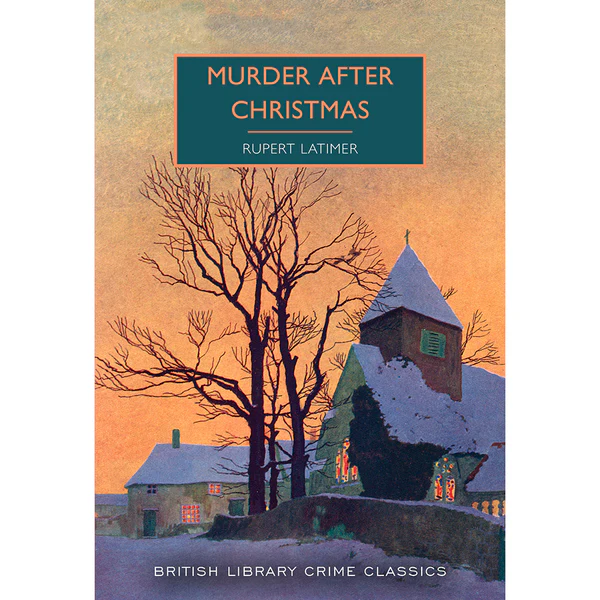
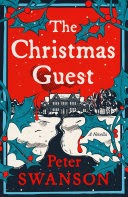
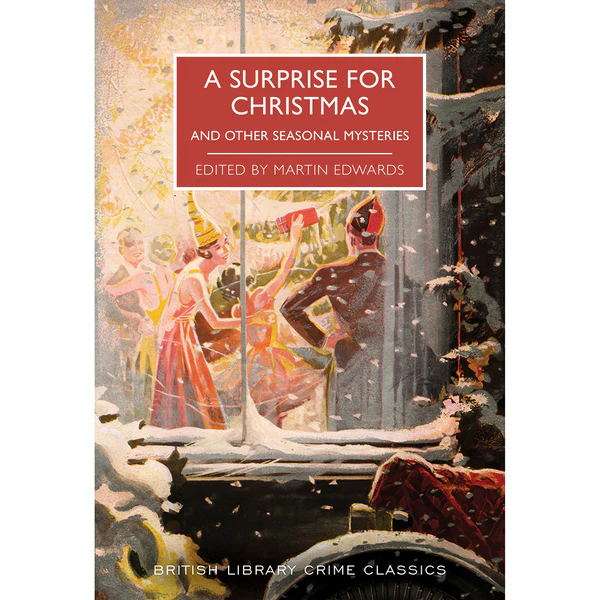
Tis’ the season after all…


